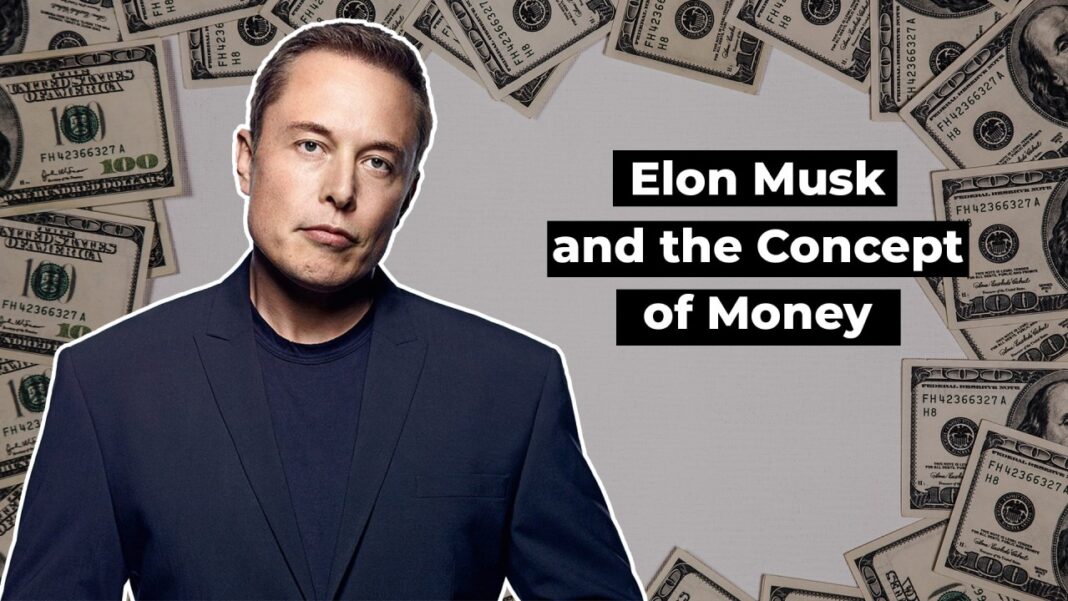When we think about money, we often associate it with power, luxury, and influence. However, the richest person on earth, currently Elon Musk, offers a radically different perspective on what money truly is and its role in our lives. This article delves into Musk’s unique viewpoint on money, exploring its function, significance, and the misconceptions surrounding wealth.
Money as Information
Elon Musk describes money not as an embodiment of power but as a form of information. He likens money to a database for resource allocation. To illustrate, he uses the example of being stranded on a tropical island with a trillion dollars—without the necessary resources to buy, that money would be utterly useless. Money, according to Musk, is simply a means to exchange goods and services efficiently and to shift obligations over time.
Musk’s perspective aligns with economic theories that view money as a medium of exchange and a store of value. It facilitates trade, allowing societies to function smoothly without resorting to barter systems, which can be inefficient and cumbersome.
For more insights on the role of money in modern economies, explore this detailed article from Investopedia.

The True Economy
Musk emphasizes that the true economy consists of the production of goods and services, not money itself. The actual output of an economy is measured by what it can produce and provide, not by the amount of money in circulation. Money serves merely as a tool to facilitate these transactions. Therefore, the focus should be on creating value through goods and services rather than accumulating money.
This viewpoint challenges the conventional notion that wealth equates to piles of cash or assets. Instead, it highlights the importance of innovation, productivity, and value creation. Read more about economic value creation in this Harvard Business Review article.
Information Theory Applied to Money
Applying information theory to money, Musk suggests that the quality of a monetary system depends on the accuracy and efficiency of the information it conveys. A good monetary system should provide reliable information about the value of goods and services, enabling efficient resource allocation. When money functions well as an information system, it helps optimize economic activities and societal well-being.
To delve deeper into the application of information theory to economics, this Stanford University paper provides a comprehensive overview.
Misconceptions About Billionaires
Many people view billionaires with skepticism, believing that their immense wealth comes at the expense of others. However, Musk argues that there are fundamental flaws in this viewpoint. He points out that his personal consumption is minimal, and much of his wealth is tied up in his companies, which aim to solve significant global challenges.
Musk does not live a typical billionaire lifestyle. He doesn’t own a home and often stays with friends. His primary luxury is a plane, which he uses to maximize his productivity. His companies—Tesla, SpaceX, Neuralink, and The Boring Company—are driven by missions that extend beyond profit, aiming to benefit humanity as a whole.
Philanthropy Through Innovation
Musk’s approach to philanthropy is embedded in his business ventures. He views his companies as vehicles for positive change. Tesla aims to accelerate the world’s transition to sustainable energy, while SpaceX is working to ensure humanity’s long-term survival by making life multi-planetary. These endeavors reflect a profound commitment to improving the world through technological advancements.
Traditional philanthropy often involves donating money to various causes. Musk’s version of philanthropy, however, focuses on leveraging his companies’ innovative capabilities to address global issues. Learn more about Musk’s philanthropic philosophy in this article from Business Insider.
Money and Personal Motivation
Despite being one of the richest people on earth, Musk claims he is not motivated by money. His drive comes from his passion for solving problems and advancing human capabilities. This mindset underscores the idea that true fulfillment and motivation often come from pursuing meaningful work rather than accumulating wealth.
Musk’s perspective encourages us to rethink our relationship with money and success. It suggests that focusing on creating value and pursuing our passions can lead to a more satisfying and impactful life.
Conclusion: Rethinking Wealth and Success
Elon Musk’s insights on money challenge conventional beliefs about wealth and power. By viewing money as an information system and focusing on the real economy of goods and services, he offers a refreshing perspective on what truly matters. His approach to philanthropy through innovation and his personal motivations provide valuable lessons on the purpose and use of money.
Understanding Musk’s viewpoint can inspire us to reconsider our own financial goals and the role of money in our lives. It’s not just about accumulating wealth but about creating value, solving problems, and making a positive impact on the world.
For further reading on the economic theories and principles discussed, consider these resources:
- Investopedia: The Role of Money
- Harvard Business Review: Creating Value People Want to Pay For
- Stanford University: Information Theory and Economics
- Business Insider: Elon Musk’s Philanthropy
Understanding these principles can help us navigate our financial journeys with a more informed and enlightened perspective.


